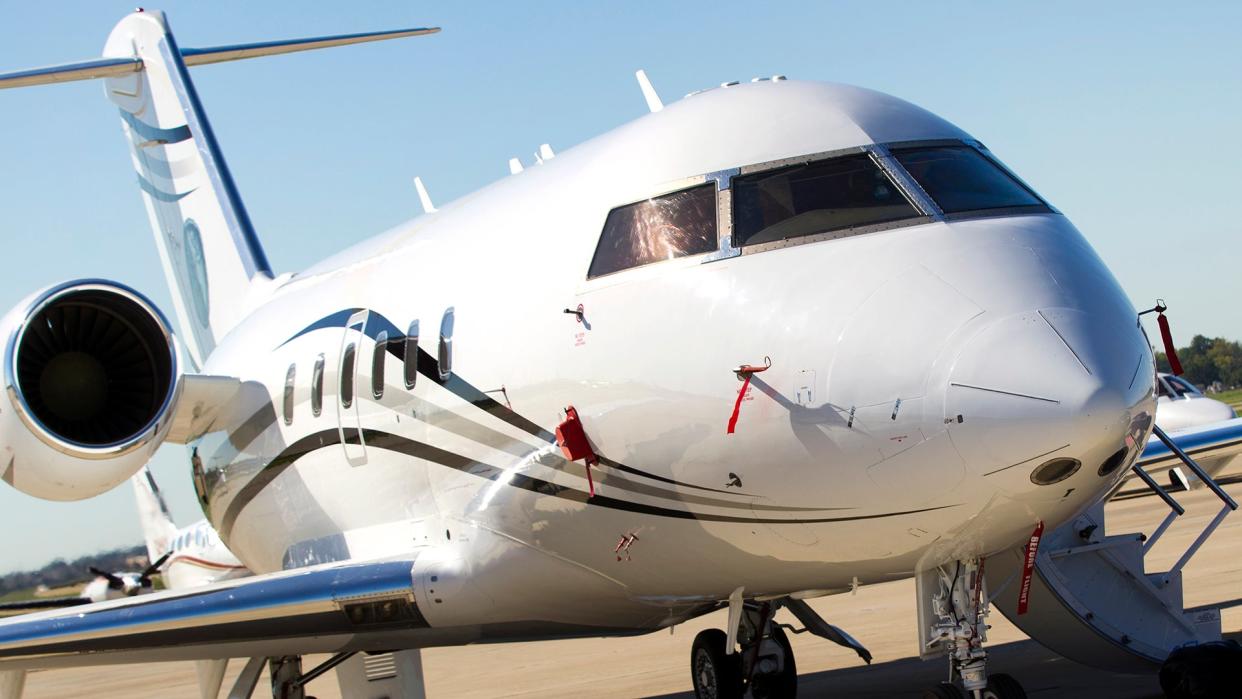Congress Has Made Fully Obscuring Aircraft Ownership Information A Reality

- Oops!Something went wrong.Please try again later.
A data privacy amendment buried within the Federal Aviation Administration re-authorization bill will allow private aircraft owners to fully block aircraft registration information. Concealing this information will make establishing who owns private aircraft much more difficult, and render aircraft harder to track.
President Joe Biden signed the bipartisan Federal Aviation Administration (FAA) re-authorization bill into law yesterday. Last week, it passed a vote in the Senate 88-4, before going on to pass a vote in the House of Representatives by 387 to 26 on Wednesday. The bill was introduced into the House in June of last year.
The FAA re-authorization bill renews the agency's authority for the next five years, and authorizes more than $105 billion in funding for it from fiscal years 2024 through 2028. The legislation aims to improve aviation safety, as well as tighten protections for both airline workers and passengers.
As a requirement of private aircraft ownership in the U.S., airplanes must be registered with the FAA's civil registry. The FAA's civil registry is the largest in the world, with approximately 300,000 registered aircraft approved to operate with N-number markings. Information on the registry has many uses, and is a valuable tool as it allows data on aircraft type, ownership, and airworthiness to be accessed. This flight tracking information has been critical to high-impact news stories over the years.
However, the way in which the FAA displays information connected on its registry will, in some cases, change as a result of the FAA re-authorization bill. This was highlighted by Jack Sweeney on X, who is famous for monitoring the jet flights of Elon Musk and Taylor Swift, before it was signed into law by President Biden. The origins of the provision in the bill remains unclear.
The amendment, which pertains to Chapter 441 of title 49, United States Code, reads as follows:
§ 44114. Privacy
(A) IN GENERAL.— Notwithstanding any other provision of law, including section 552(b)(3) of title 5, the Administrator of the Federal Aviation Administration shall establish and update as necessary a process by which, upon request of a private aircraft owner or operator, the Administrator withholds the registration number and other similar identifiable data or information, except for physical markings required by law, of the aircraft of the owner or operator from any broad dissemination or display (except in furnished data or information made available to or from a Government agency pursuant to a government contract, subcontract, or agreement, including for traffic management purposes) for the noncommercial flights of the owner or operator.
(B) WITHHOLDING PERSONALLY IDENTIFIABLE INFORMATION ON THE AIRCRAFT REGISTRY.— Not later than 2 years after the enactment of this Act and notwithstanding any other provision of law, including section 552(b)(3) of title 5, the Administrator shall establish a procedure by which, upon request of a private aircraft owner or operator, the Administrator shall withhold from broad dissemination or display by the FAA (except in furnished data or information made available to or from a Government agency pursuant to a government contract, subcontract, or agreement, including for traffic management purposes) the personally identifiable information of such individual, including on a publicly available website of the FAA.
At present, there are a number of ways private individuals and entities can legally obscure and block information connecting them as owners of specific aircraft, thus making it harder to track their movements and jet usage — although these do not go as far as the data privacy amendment within the recently signed bill.
Corporate ownership structures, for example, are often used as a means of obscuring true aircraft ownership. These can include limited liability companies (LLCs), non-citizen trusts, and shell companies (companies that conduct no business or minimal business). They can be used individually, or in combination, to hold aircraft titles for registration purposes. However, the identities of those who actually own an aircraft can still be figured out, in certain cases, using other investigative means and despite attempts to shield the information via corporate ownership structures.

The FAA itself offers the cost-free Limiting Aircraft Data Displayed (LADD) program, previously known as the Blocked Aircraft Registration Request (BARR) program. In participating in the LADD program, aircraft owners and designated representatives can instruct the FAA to inform third-party flight tracking vendors using FAA data systems to block aircraft registration numbers, call signs, or flight numbers. Private jet users including former President Donald Trump, rapper Drake, and director Steven Spielberg have signed up for the LADD Program, according to Jack Sweeney's LADD List.
In terms of blocking flight tracking data, the FAA offers the Privacy ICAO (International Civil Aviation Organization) aircraft address (PIA) program. The PIA program limits personalized flight-tracking information circulating from aircraft ADS-B transponders, which are used to broadcast the location of aircraft, and other data, in an unencrypted manner. This is done by privatizing the aircraft's ICAO identification number. An aircraft's ICAO identification number is a two, three, or four-digit number unique to each aircraft, making aircraft identification possible.
It is advised that aircraft owners should participate in both the LADD and PIA programs for maximum protection, although this is not foolproof. Non-FAA, third-party sources are able to capture aircraft information and flight details directly from ADS-B transponders, since they are not encrypted, and broadcast over the open airwaves. For instance, sites such as ADSBExchange.com takes feeds from private ASA-B receivers around the world to provide its real-time data.

However, the amendment in the new bill offers a far more comprehensive option for those wanting to block ties to their aircraft, without going through the above channels. In order for aircraft owners or operators to have said information blocked, however, they must "attest to a safety or security need" for it.
It is precisely concerns over safety and security that a number of high-profile, private-jet owners have pointed to about publicly accessible flight information. During his very public discourse with Sweeney in 2022, Musk claimed that his jet-monitoring activities constituted a "direct personal safety risk." Similar arguments over safety have been raised by Taylor Swift's legal team with regards to Sweeney's flight-tracking, although his legal representation maintains there is "nothing unlawful" in using "publicly available information" like flight-tracking data. Sweeney's flight tracking X accounts now only post information on a 24 hour delay.
It should be noted that security concerns have been cited as reasons for the removal of various U.S. aircraft serial numbers and identifying markings in the military context, instigated by the U.S. Air Force’s Air Mobility Command. Congress has also had a hand in efforts to obscure the flight activities of U.S. Air Force aircraft, which you can read more about here.
Regardless of what the influences were behind the inclusion of the data privacy amendment in the bill, many will no doubt see it as another avenue via which elite flyers can obtain special treatment to conceal their travels, while some aircraft owners will certainly rejoice in the new privacy facilitation on their behalf by the FAA. Yet how far it will actually limit the ability to track flights and who is on them remains to be seen.
"Let this be said that this doesn’t prevent us from tracking jets," Sweeney wrote on X. "We can still figure out who’s who via context clues."
Contact the author: oliver@thewarzone.com

